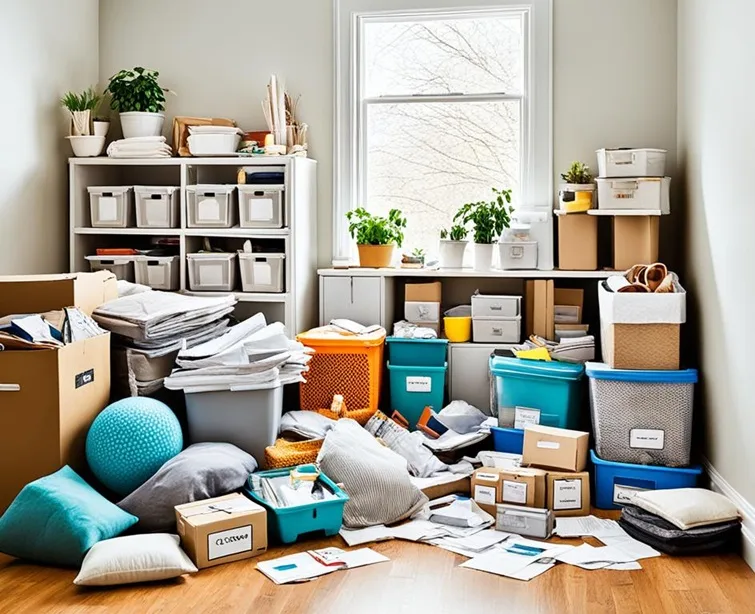As the seasons change, so too does our desire to refresh and renew our living spaces. With the accumulation of unnecessary items often clouding our homes and lives, adopting a decluttering strategy can have a transformative effect on our well-being and environment. But where do we begin when the task seems so daunting? Fear not, as this article provides practical tips for decluttering your property and responsibly disposing of your junk. Keep reading to unlock a cleaner, more organized home.
Leveraging Local Resources and Services for Junk Disposal
Once you’ve decided what to part with, identifying local resources that can facilitate the disposal of your junk is essential. Many communities offer bulk waste pickup services or have designated drop-off locations for large items that are not suitable for regular trash collection. Check with your local waste management to learn about the resources available in your area for responsible disposal.
For items that still have life in them, local charities and thrift stores are often willing to accept donations. Giving these items a second chance not only aids those in need but also contributes to a more sustainable cycle of use and reuse. Make sure to inquire about the types of items these organizations are currently accepting, as certain restrictions often apply.
For more cumbersome items like old vehicles, leveraging services that pick up junk cars can offer a hassle-free solution. These services typically handle all the necessary logistics, from towing the car to recycling its parts responsibly. By enlisting professional help for such tasks, you minimize your effort while maximizing positive environmental impact.
Strategic Decluttering Methods for Efficient Junk Removal
Decluttering can seem overwhelming, so it’s essential to approach the task with a methodical plan. One effective strategy for junk removal is categorizing items into distinct groups. This could mean dividing into what to keep, what to sell, and what to give away or recycle. Set aside a specific spot for each category, streamlining the process and avoiding confusion about the destinies of your items.
Another strategy involves setting realistic goals for your decluttering process. Trying to tackle the entire house in one go can lead to frustration and burnout. Instead, create a timeline, assigning different days or weekends to different areas of your home. By breaking the task into smaller, more achievable chunks, you’re less likely to feel overwhelmed and more likely to succeed.
Consider implementing a ‘one in, one out’ rule to prevent future clutter from accumulating. Whenever a new item is brought into your home, make a habit of removing another. This technique helps maintain a balanced quantity of possessions, safeguarding the spaciousness and order you’ve worked hard to create.
Selling, Donating, Recycling: Smart Ways To Dispose of Unwanted Items
When decluttering, consider turning your trash into someone else’s treasure. Online marketplaces are excellent platforms to sell gently used items. Setting competitive prices and providing detailed descriptions can help ensure that your items find a new home. Additionally, hosting a garage sale can be a fun and effective way to bring the community together and sell items locally.
Donating to local charities not only frees up space in your home but also supports community members in need. Clothes, books, and household items can be especially helpful to those starting over or struggling financially. Ensure your donations are in good condition, as charities often lack the resources to repair damaged goods.
Recycling has profound environmental benefits and should be a key part of your decluttering strategy. Examine your municipality’s recycling guidelines to understand what materials are accepted and how to prepare them. Failing to follow these guidelines could contaminate the recycling stream, undermining your good intentions and the effectiveness of recycling programs.
Establishing Sustainable Habits To Maintain a Clutter-Free Property
True decluttering is not a one-time event; it’s the cultivation of ongoing habits that keep your space organized and clutter-free. Developing routines, such as a weekly review of household items or regular purging sessions, can prevent the build-up of unnecessary possessions. Awareness and consistency are key elements in sustaining an organized living environment.
Mindful consumption plays a pivotal role in maintaining minimal clutter. Before acquiring new items, consider their long-term value and necessity. Make intentional purchasing decisions, opting for quality over quantity. This mindset not only reduces clutter but also helps curb the cycle of waste and unsustainable production.
Overall, the journey to declutter your property and dispose of junk is both a practical endeavor and a meaningful lifestyle shift. By implementing these tips, you’ll not only enjoy a more organized and serene living space but also contribute to a healthier, more sustainable world. Let the decluttering begin!





